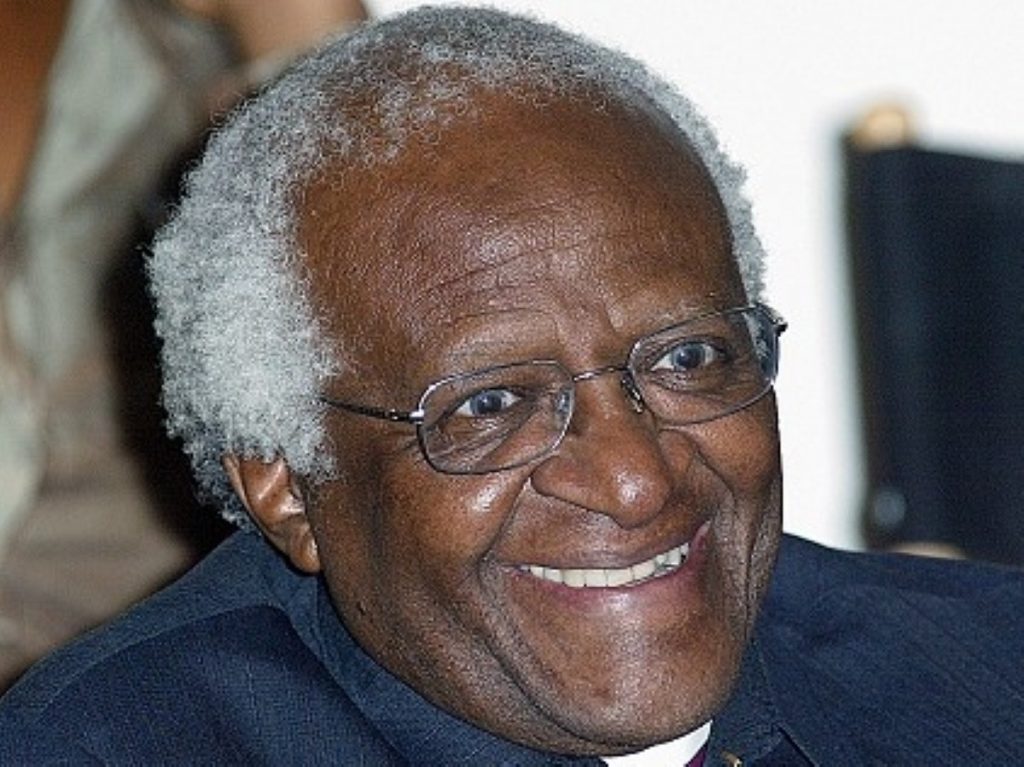Sketch: Tutu takes a bow
When Archbishop Desmond Tutu enters a room people usually stand up and applaud. Most, I imagine, don’t know all the details of his battle against South African apartheid but they do know that this is someone who deserves respect.
By Samuel Dale
The archbishop recently announced his intention to step down from public life because, at the age of 79, he wants to relax and watch cricket. An interview with Sir Trevor Macdonald was therefore billed as his final appearance in Britain and fittingly it was in… Croydon.
I have no idea why a Nobel laureate who has advised presidents and prime ministers across the globe felt compelled to visit the depths of south London. The audience was pleased he did, at least.
Poor sound quality – you can bring distinguished guests to Croydon but it’s still Croydon – didn’t blight the evening. Neither did some off-the-wall questions from an Iraq war protester, an animal rights campaigner and someone, bizarrely, asking what Tutu’s name meant.
Sir Trevor tried his best to listen to audience questions but his patience was being tested. Tutu, meanwhile, displayed nothing but humour and good grace in the face of screeching microphones and incomprehensible questioners.
The archbishop recalled his early struggles growing up in apartheid South Africa which, despite the injustices, he remembered with fondness. His high-pitched infectious laugh, which comes at some of the most inappropriate occasions like Dr Hibbert in the Simpsons, was in full flow despite the disturbing subject.
But he supported economic sanctions on South Africa despite the impact it might have on the poor. “It was the only way to get rid of such a crazy system,” he said. His sheer disbelief that such a system of racial division could ever be tolerated is as palpable now as it ever was.
He met Margaret Thatcher to try and persuade Britain to impose sanctions on his home nation. But “the lady was not for turning”, he said, followed by his trademark laugh. Ronald Reagan snubbed him at the White House until, after winning the Nobel Peace Prize in 1984, he could no longer be ignored. He too showed little interest in ending apartheid. “The West were supporting our oppressors,” Tutu recalled.
But then there was a real moment of joy when Nelson Mandela was released from prison, and Tutu’s laugh was finally appropriate. He recalled Mandela’s magnamity as the only way to stop South Africa from turning into ruins and how it was lucky to have him at that time. The famous moment when Mandela donned the green and gold Springbok jersey at the Ellis Park rugby World Cup final was crucial in winning over white South Africans. It was “worth 100 sermons from an archbishop” on the path to reconciliation, Tutu modestly claimed.
The end of apartheid and the unification of the rainbow nation was perhaps the climax of Tutu’s life. It was therefore mildly uncomfortable that Sir Trevor chose this very moment to complain about time constraints and ushered the elderly priest away from the topic.
Although he may be retiring Tutu certainly has much to say on modern South Africa and the world. The Iraq war was immoral, he says. He even spoke to a White House national security adviser in the run-up to ask them to give inspectors more time but, like many others, was ignored. He was asked about Zimbabwe, which drew an audible gasp from the audience. He wants to see more pressure on Robert Mugabe but displayed surprising naivety by suggesting he could be persuaded to step down. The poverty and crime of South Africa can be cured through clean water, healthcare and food distribution, he also claimed.
I have an instinctive scepticism towards people treated with universal, almost unquestioned reverence and respect. Surely no one is deserving of such an accolade? Not really. But Tutu’s respect for equality in race, sexual orientation and gender is simple yet inspiring. The world will miss the man, and his high-pitched laugh.





-01.png)